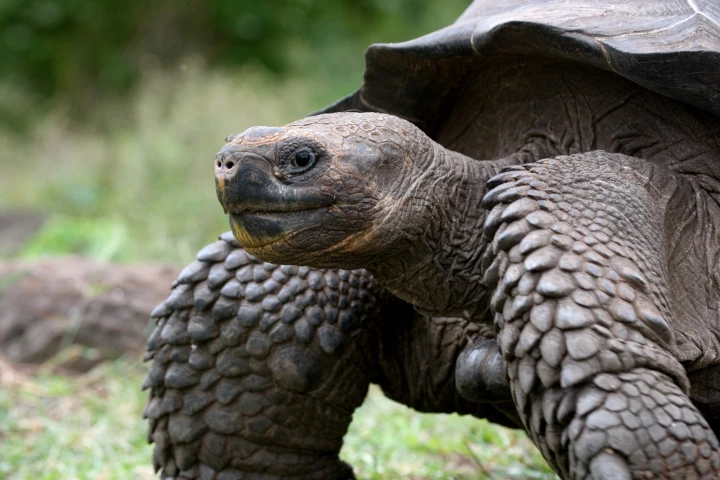Galapagos
-
On the 215th anniversary of the birth of the world's most famous naturalist Charles Darwin, scientists have painstakingly completed an inventory of his eclectic, extensive personal library, and 9,300 titles are now available to view online for free.
-
Almost 200 years on from when Charles Darwin observed his Galapagos Islands finches, which became the emblems of his theory of evolution, birds in the region are again in the news for what many scientists warn could be the source of the next pandemic.
-
In 1986 it got up close to the Titanic, and now deep-sea explorer Alvin is achieving more world firsts, this time documenting 1.2 miles of new reef featuring live coral that's thousands of years old. Scientists hope it's the first of many to be found.
-
Galapagos giant tortoises are some of the longest-living animals on Earth, but how do they pull off the feat? A new study has examined the genome of the species and found duplicate genes that may protect them from aging-related diseases like cancer.
-
In 2012 Lonesome George passed away, and the Pinta Island tortoise was declared extinct. But now, genetic studies have revealed that tortoises on neighboring islands carry on the lineage – and hint that surviving members may be hiding somewhere.
-
Marine researchers have discovered that some species of skate were incubating their eggs in deep-sea hydrothermal vents, a behavior never before observed in marine animals.
-
The upcoming auction of an marine chronometer highlights just how far science has advanced in the last 200 years. The historically significant instrument accompanied Charles Darwin on his epic second voyage, helped establish the USA-Canada border and accurately mapped the Australian coastline.
-
Sharp has announced that it plans to join the e-book party with an online store and a couple of readers available in Japan by the end of the year







